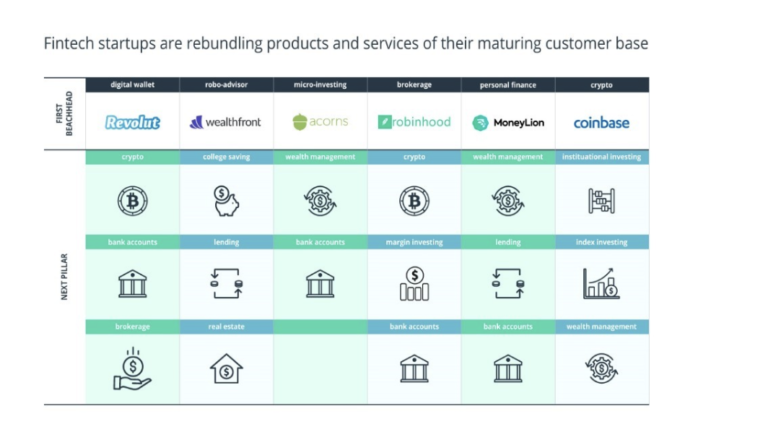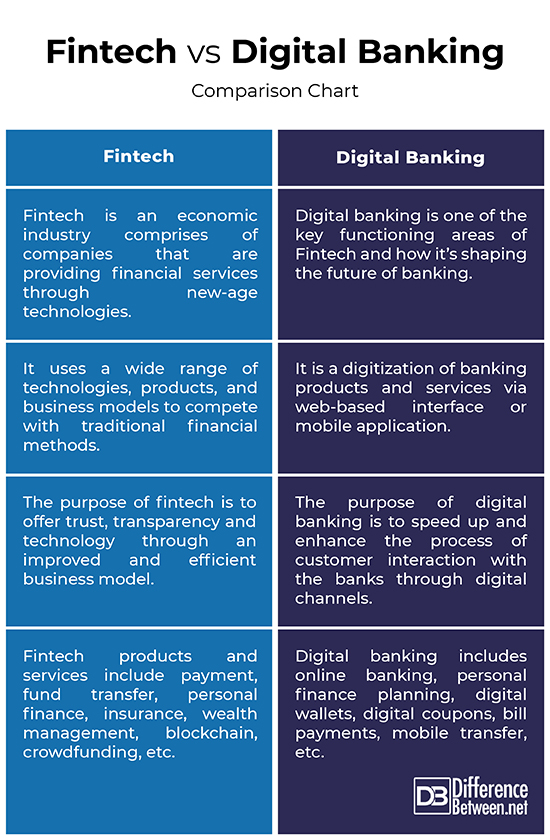What Is FinTech In The Context Of Bangladesh?
FinTech, short for Financial Technology, is an emerging technology-driven industry in Bangladesh that is transforming the way financial services are delivered. By leveraging technological innovations, FinTech is providing innovative financial solutions to consumers, businesses, and governments in Bangladesh. FinTech is enabling a more efficient, secure, and accessible global financial system, with the potential to bring improved financial services to people and businesses in Bangladesh. FinTech has the potential to drive significant improvements in financial inclusion, financial literacy, and economic development in Bangladesh. In particular, FinTech is helping drive digital financial services, such as mobile banking, online payments, and digital wallets, which are making financial services more accessible to people in Bangladesh. FinTech is also enabling businesses to access capital more quickly and easily, with a range of different financing options available, including crowdfunding and peer-to-peer lending. FinTech is also helping to create new job opportunities in the country, with a range of new technological roles being created. In the future, FinTech could also help drive faster and more efficient government services, such as tax collection and public services. Ultimately, FinTech is unlocking the potential of financial services in Bangladesh, and creating a more efficient and secure financial system.
Definition of FinTech
FinTech, or Financial Technology, is a broad term encompassing the technology-driven financial services industry. It is the combination of traditional financial services and modern technology such as artificial intelligence, cloud computing, and big data. FinTech is the use of technology to make banking, investing, and payments faster, easier, and more secure. In Bangladesh, FinTech is helping to revolutionize the way financial services are delivered, making it easier for people to access banking services, manage their investments, and send payments. FinTech is enabling financial access for the unbanked, providing innovative products and services, and helping to reduce financial exclusion. It is also being used to automate payments and to provide financial insights to customers. By leveraging technology, FinTech is transforming the way people access banking and financial services in Bangladesh.
History of FinTech in Bangladesh
FinTech, or financial technology, is an increasingly popular industry in Bangladesh. In recent years, the country has seen tremendous growth in its FinTech sector and it shows no signs of slowing down. To understand the current state of FinTech in Bangladesh, it’s important to look at where the industry started.
The FinTech industry in Bangladesh began in the early 2000s with the introduction of mobile banking. This allowed people to access financial services from their mobile phones, which made it much easier to manage their finances. Since then, the FinTech industry in Bangladesh has grown significantly. In 2020, the total value of FinTech transactions in the country was estimated to be over $1.5 billion.
More recently, Bangladesh has seen an influx of new FinTech startups and companies offering a variety of services. These services include digital payments, payments through mobile wallets, loan origination, and more. Additionally, the government has made efforts to create a supportive environment for innovation in FinTech. This includes launching initiatives such as the Digital Financial inclusion Program, which is aimed at increasing access to financial services for everyone in the country.
Overall, the FinTech industry in Bangladesh is growing rapidly and is becoming an important part of the country’s financial landscape. With the right support and initiatives, it has the potential to play an even bigger role in the future.
Advantages of FinTech in Bangladesh
FinTech is revolutionizing the financial sector in Bangladesh. With the advent of digital payments, artificial intelligence, and blockchain technology, the country is on the cusp of a financial transformation. FinTech offers numerous advantages to Bangladesh, such as increased access to financial services, improved financial literacy, and greater convenience.
The rise of FinTech has allowed for greater access to financial services and products, particularly for those who have traditionally been underserved by the traditional banking system. FinTech companies are often more agile and flexible than traditional banks, allowing them to provide services to customers in a more timely and cost-effective manner. In addition, many FinTech companies are utilizing innovative technologies such as blockchain and artificial intelligence to offer more secure and efficient services.
FinTech is also increasing financial literacy in Bangladesh, as more people are able to access education and resources to better understand the financial system. FinTech companies are often more consumer-focused than traditional banks, providing customers with access to financial advice and resources. Additionally, FinTech companies are providing more convenient payment options, such as online banking, mobile payments, and digital wallets, which allow customers to manage their finances more easily.
Overall, FinTech is changing the financial landscape in Bangladesh, and is offering numerous advantages to both companies and customers. With the increased access to financial services, improved financial literacy, and greater convenience, FinTech is helping to create a more financially secure and prosperous future for Bangladesh.

Challenges of FinTech in Bangladesh
FinTech, or financial technology, is one of the fastest growing industries in Bangladesh. It is opening up new opportunities for businesses and individuals to access financial services more quickly, cost effectively and securely. However, there are several challenges that FinTech is facing in Bangladesh.
One of the biggest challenges is the lack of awareness and understanding among the population. Many people are still unfamiliar with the concept of FinTech and its potential benefits, which can make it difficult to persuade them to use it. Additionally, the financial infrastructure in Bangladesh is still underdeveloped, which makes it difficult to support the growth of FinTech in the country.
Furthermore, the lack of skilled personnel is also a challenge. FinTech requires highly skilled professionals who are knowledgeable about technology and the financial sector. However, there is a shortage of such personnel in Bangladesh, which makes it difficult to keep up with the increasing demand for FinTech services.
Finally, the regulatory landscape is also an issue. FinTech is an emerging industry and the regulations often lag behind the innovation. This can make it difficult for FinTech companies to operate in the country and can also put customers at risk.
Overall, there are several challenges that FinTech is facing in Bangladesh. However, if addressed properly, these challenges can be overcome and FinTech can become an important part of the country’s financial sector.
FinTech Regulations in Bangladesh
The FinTech industry in Bangladesh is rapidly evolving and the government has taken some important steps to ensure that the sector is well regulated. FinTech (Financial Technology) is a term used to refer to the use of technology to enable financial services and transactions. In Bangladesh, the Bank and Financial Institutions Division of the Bangladesh Bank is responsible for regulating FinTech.
The government has made some important changes to the country’s financial landscape, introducing various regulations, such as digital banking licenses, guidelines for payment service providers, and restrictions on online lending activities. These regulations have helped to create a more secure and efficient financial sector in Bangladesh, ensuring that FinTech companies can operate responsibly and effectively.
Moreover, the Bangladesh Bank has launched a FinTech sandbox, which enables startups to test their products and services in a live environment before entering the market. This allows the government to monitor the development of new products and services and ensure that they meet the regulatory standards.
In conclusion, the FinTech industry in Bangladesh is rapidly growing and the government has taken some important steps to ensure that it is well regulated. The regulations introduced by the Bangladesh Bank have helped to create a secure and efficient financial sector, enabling FinTech companies to operate responsibly and effectively.
Future of FinTech in Bangladesh
FinTech is a rapidly growing sector in Bangladesh, with a range of innovative solutions being developed to address challenges in the banking and financial services domain. With the support of the Bangladesh government, the financial sector is undergoing major transformation. As a result, the demand for FinTech solutions is rising, with the potential to create new opportunities and drive economic growth. This article will take a look at the current state of FinTech in Bangladesh, the potential for growth, and the future of FinTech in the country.
The Bangladesh government has invested heavily in the FinTech sector, providing incentives such as tax breaks and grants, and setting up a dedicated FinTech fund to support new businesses. This has resulted in an influx of startups and entrepreneurs, who are leveraging the latest technology to create innovative products and services. The banking sector in particular is seeing significant investment, with banks and financial institutions embracing digital solutions such as mobile banking and digital payments.
The future of FinTech in Bangladesh looks promising, with the potential to revolutionize the financial sector and create new opportunities for businesses and consumers. With the right policies and regulations in place, the country could become a hub for FinTech innovation, driving economic growth and creating new jobs in the process. As such, it is essential that the government and private sector continue to invest in the sector, to ensure that the country remains at the forefront of FinTech innovation.
FAQs About the What Is FinTech In The Context Of Bangladesh?
1. What are the benefits of FinTech in Bangladesh?
Answer: FinTech in Bangladesh can provide a range of benefits, including improved access to financial services, increased transparency, better customer experience, and increased financial inclusion.
2. What are the main FinTech solutions in Bangladesh?
Answer: Major FinTech solutions in Bangladesh include mobile banking, digital payments, online lending, insurance and investment platforms, and blockchain technology.
3. What are the risks associated with FinTech in Bangladesh?
Answer: The risks associated with FinTech in Bangladesh include cyber security threats, regulatory compliance issues, reputational risks, and the potential for fraud. It is important to ensure that all FinTech solutions are secure and compliant with the local regulatory framework.
Conclusion
In conclusion, FinTech in the context of Bangladesh has enabled the country to become a leader in financial technology innovation and services. FinTech has provided a platform for businesses to grow and develop, while providing access to financial products and services for individuals, businesses, and organizations. FinTech has also allowed the country to create a more efficient and reliable financial system, allowing for improved data analysis, improved customer service, and greater access to financial services for all. FinTech has been a major contributor in helping Bangladesh to become one of the most technologically advanced countries in the world, and its growth and success are likely to continue in the future.



